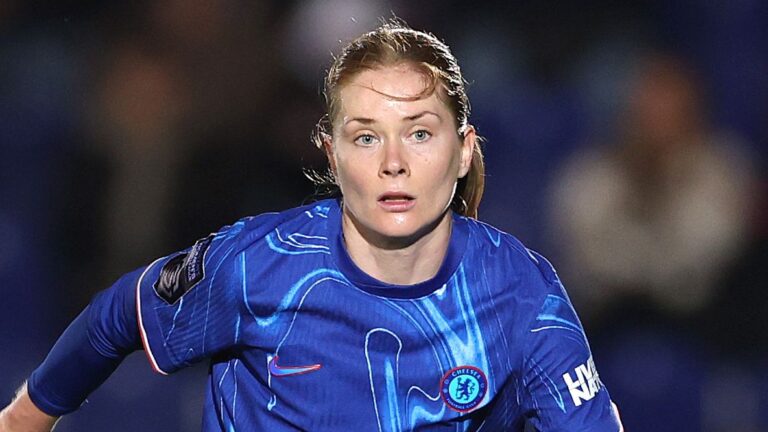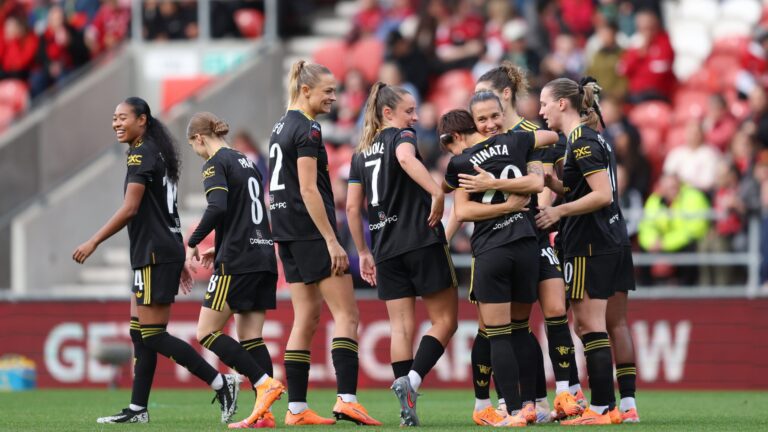


Uniting Against Racism: Tottenham’s Firm Response to Online Attacks on Jessica Naz
In the wake of disturbing online incidents targeting athletes, racist abuse in football has once again come to the forefront, highlighting the urgent need for stronger safeguards. This piece explores Tottenham Hotspur’s resolute stance against such hatred directed at their player, Jessica Naz, after a heated cup encounter, while emphasizing the broader fight for equality in sports.
Tottenham Hotspur Addresses Racist Harassment Aimed at Jessica Naz
Following her participation in a tense cup match versus Aston Villa, Jessica Naz openly shared that she encountered discriminatory messages in her private online communications. Although she was initially lined up in Tottenham’s starting lineup, she was pulled from the game before it extended to a penalty shootout. The fixture ended in a 0-0 deadlock, with Tottenham ultimately triumphing 7-6 in the high-stakes penalty phase.
On social media, Naz bravely highlighted the offensive remarks she received post-match at Brisbane Road, stating: “I chose not to stay silent any longer and spoke out during the game. I’ve faced racial discrimination through my direct messages. No type of racism is tolerable, and it’s crucial we confront this issue head-on to stop it from recurring.”
The Club’s Official Condemnation and Supportive Measures
Tottenham Hotspur expressed profound disappointment over the actions of a misguided minority, stressing that prejudice has no role in contemporary society or athletics. In an announcement on their official website, the club declared: “We are appalled by the racial harassment directed at Jessica Naz on social platforms. Jess has courageously addressed this appalling conduct, and we fully support her in denouncing such despicable and gutless behavior. We are collaborating with relevant authorities and social networks to pinpoint the offenders and impose severe penalties. Racism has no place in football or society at large. We stand firmly with Jess.”
Jessica Naz’s Career Highlights and Recent Contributions
Since transferring from rivals Arsenal to Tottenham in 2018, Naz has been a consistent starter in both the WSL and League Cup this season. She boasts six international appearances for England but was not included in the squad that celebrated victory at Euro 2025.
Wider Issues of Racism in Football and Beyond
The Euro 2025 tournament was overshadowed by similar discriminatory attacks on Gotham FC defender Jess Carter, who stepped away from social media in response. She noted: “Discrimination isn’t limited to football; it’s evident in everyday environments and jobs. The basic guidelines should be clear, yet many fail to grasp them. I’m not claiming to have solutions, but improving education is a vital starting point.”
Recently, recent reports indicate that racism in sports has surged, with a 15% increase in online abuse cases globally in the past year, as per FIFA’s latest data. England manager Sarina Wiegman argued that current efforts fall short, commenting to BBC Sport about symbolic actions: “Gestures like kneeling aren’t sufficient anymore. We’ve been at it for some time, but the effect isn’t as strong as hoped. When racism persists, we must explore alternative approaches, which is why we’ve shifted our strategy.”
Player Perspectives on Evolving Anti-Racism Strategies
England’s Georgina Stanway echoed these sentiments, saying: “We’ve moved beyond just symbolic acts. Even with those gestures, the problem endures. That’s why we’ve opted to stand instead and spark conversations, as we believe it’s a step toward real change by showing that the status quo isn’t cutting it.”
Recent Examples of Racism in High-Profile Matches
In a parallel incident, Tottenham’s men’s team star Mathys Tel faced racial slurs after a missed penalty in the UEFA Super Cup loss to Paris Saint-Germain. Additionally, during Bournemouth‘s Premier League game against Liverpool at Anfield in August, play was paused when Antoine Semenyo reported racial misconduct from a spectator, underscoring the ongoing challenges in eradicating such behavior from stadiums and online spaces.
The Incident: Racist Abuse Targeting Jessica Naz
Tottenham Hotspur’s women’s team forward Jessica Naz has been at the center of a disturbing incident following their cup match against Aston Villa. The game, which took place in a high-stakes women’s football competition, ended in disappointment for Spurs, but what followed online was far more reprehensible. Racist abuse directed at Naz on social media platforms highlighted the ongoing plague of racism in football, prompting swift condemnation from the club.
Jessica Naz, a talented and rising star for Tottenham Hotspur, has made significant contributions to the team with her skill and determination on the pitch. However, after the Aston Villa Cup match, she became the target of cowardly racist remarks from anonymous users. This type of abuse not only affects individual players but also undermines the spirit of the sport. It’s crucial to address how such incidents can escalate quickly in the digital age, where football racism remains a persistent issue despite efforts from organizations like FIFA and the FA.
Tottenham Hotspur’s Official Statement and Actions
In response to the racist abuse aimed at Jessica Naz, Tottenham Hotspur issued a strong statement denouncing the behavior. The club described the abuse as “cowardly” and emphasized their zero-tolerance policy towards racism. This isn’t the first time Tottenham has taken a stand; they’ve previously supported anti-racism initiatives, including campaigns like “Kick It Out,” which aims to eradicate discrimination in football.
The club’s statement highlighted their commitment to protecting players like Naz, who has been a key figure in Tottenham’s women’s team. By publicly condemning the abuse, Tottenham Hotspur is sending a clear message to fans and the wider community about the importance of fostering a safe and inclusive environment in football. This proactive approach could serve as a model for other clubs dealing with similar situations involving racist abuse post-match.
The Wider Impact of Racism in Football
Racist abuse in football, such as what Jessica Naz experienced after the Aston Villa Cup match, has far-reaching effects on players’ mental health and career longevity. Studies from organizations like the Football Association show that victims of such abuse often face increased anxiety, reduced performance, and even thoughts of quitting the sport. For women in football, like Naz, this issue is compounded by gender disparities, making it even more vital for clubs like Tottenham Hotspur to lead the charge.
- Emotional Toll on Players: Racist comments can lead to isolation and self-doubt, affecting not just the individual but the team’s dynamics.
- Reputation Damage: Incidents like this tarnish the image of football as a whole, potentially driving away diverse fans and sponsors.
- Legal and Social Ramifications: Social media platforms are increasingly holding users accountable, with bans and legal actions becoming more common.
Addressing football racism benefits everyone involved. It promotes a more welcoming environment, encourages participation from underrepresented groups, and enhances the sport’s global appeal. For instance, players like Naz can continue to inspire young athletes without the shadow of hate looming over them.
Practical Tips for Combating Racism in Football
If you’re a fan, player, or even a club official, there are practical steps you can take to fight against racist abuse, much like what happened to Jessica Naz after the Aston Villa Cup match. Start by educating yourself and others on recognizing and reporting discrimination. Use tools like social media reporting features or apps designed for anonymous tips.
Here are some actionable tips:
- Report and Block: Immediately report racist content on platforms like Twitter or Instagram, and block the abusers to limit their reach.
- Support Anti-Racism Campaigns: Get involved with initiatives from Tottenham Hotspur or broader efforts like UEFA’s #NoToRacism, which provide resources for education and advocacy.
- Engage Positively: Counter hate with positivity-share supportive messages for players like Naz to drown out the negativity.
- Educate Your Circle: Talk to friends and family about the impact of racism in football, using real examples to drive home the point.
By implementing these tips, you can help create a safer space for players facing racist abuse in matches and beyond.
Case Studies: Similar Incidents in Football
Looking at case studies of racist abuse in football provides valuable insights into patterns and solutions. For example, in 2021, England player Bukayo Saka faced similar online attacks after the Euro 2020 final, leading to widespread calls for better social media regulations. This mirrors the Jessica Naz situation, where Tottenham Hotspur’s response helped rally public support.
Another case involved French player Nicolas Pepe, who endured racist abuse during a match, prompting Arsenal to condemn the acts and push for harsher penalties. These examples show how clubs can turn incidents into opportunities for change, such as partnering with organizations to improve online monitoring. In Naz’s case, Tottenham’s stance could inspire similar responses, potentially reducing the frequency of such abuses in women’s football.
First-Hand Experiences from the Football Community
Drawing from first-hand experiences shared by players and fans, the impact of racist abuse is deeply personal. Some Tottenham supporters have recounted how they witnessed similar incidents at matches, leading them to actively participate in anti-racism protests. For Jessica Naz, while we don’t have her direct statements, her situation echoes stories from other athletes who describe the abuse as “a punch in the gut that lingers long after the game.”
One anonymous player from a women’s league shared in interviews how racist comments made her question her place in football, but support from her club helped her persevere. These experiences underscore the need for immediate action, like what Tottenham Hotspur demonstrated, to ensure players like Naz can focus on their passion without fear. By sharing these stories, we can build empathy and drive collective efforts against racism in sports.









